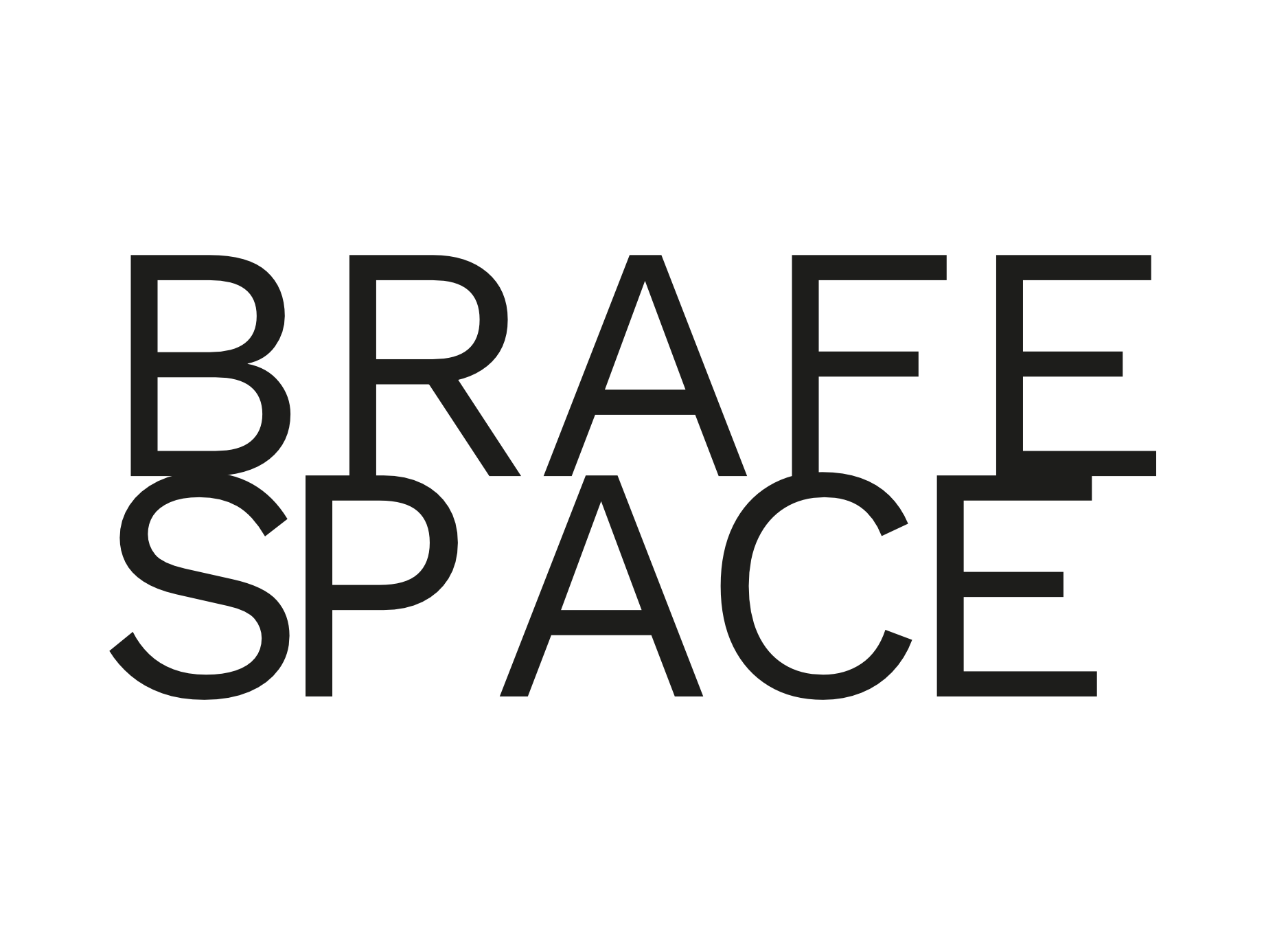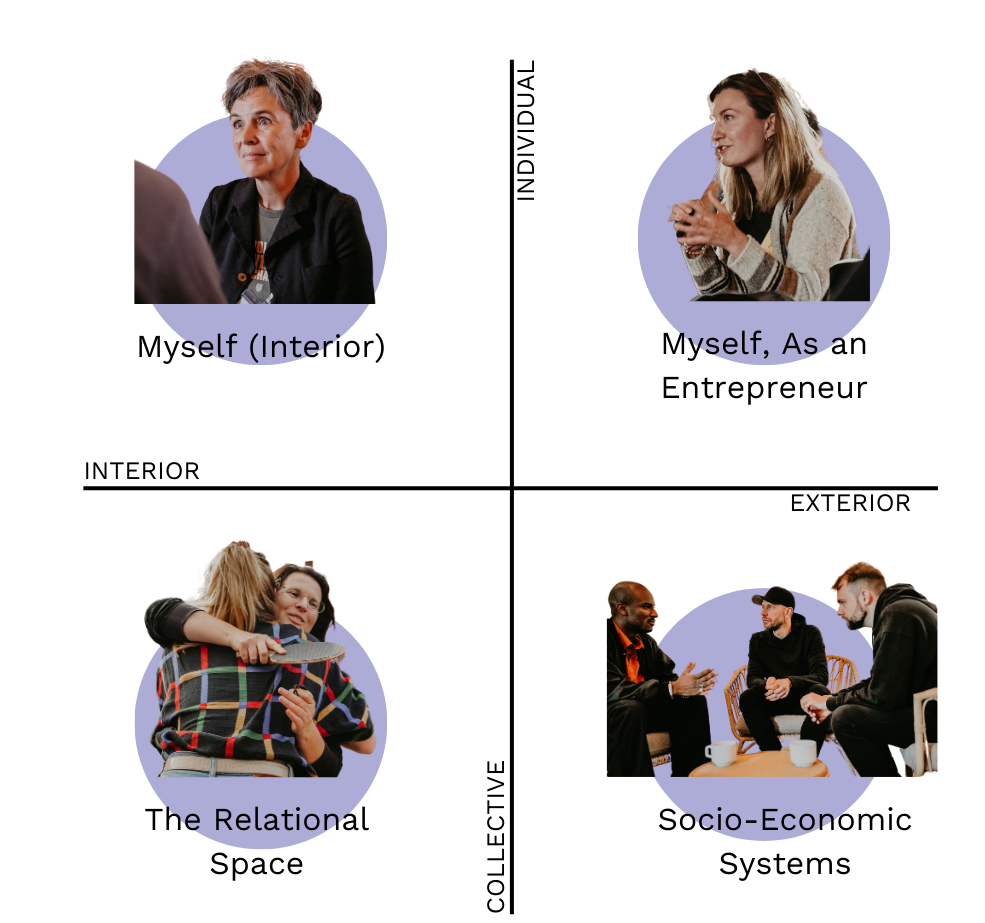Me and The Entrepreneur, Myself
This is a reflection on our brafe Tuesday - January Edition
Exploring the Intersection of Self and Entrepreneurship
Have you ever wondered about the difference between your personal self and the entrepreneur version of you? At brafe.space, we're diving into this intriguing question, and we want to share some insights we've gained, making it accessible to anyone curious, whether you're new to integral concepts or already have some familiarity.
In a recent gathering of nearly 30 change-making entrepreneurs, we explored the tension between our authentic selves and our roles in the business world. The question we focused on was, 'What is this difference between me, myself, and me, as an entrepreneur?' It's a question that already carries profound insights.
Navigating Authenticity in Entrepreneurship
Many of us have experienced institutions (schools) or organizations (work) in which we were merely seen as a resource, a function, only good enough under certain conditions. We have experienced places where productivity is driven by control and the exclusion of (human) complexity. Structural differences and privileges were almost entirely ignored, too. We have also seen how this not only made us feel sucked up, empty and only partly seen, but also limited the spaces themselves in their creativity and innovation to evolve.
Coming from these experiences, the struggle to be 100% authentic all the time in our entrepreneurial roles is real. We desire to be genuine, share a wanting to be more of ourselves, wherever we show up, we crave for spaces where our humanity can be fully expressed. And in turn as entrepreneurs/ leaders we want to build spaces where this full humanity can thrive and with it the creativity and co-creation in our organizations and networks.
But in the complexity of our work and societal structures, is this really always feasible? Are we doing justice to our roles by asking everyone, including ourselves to be all of ourselves at once and 100% authentic to all of us all the time? Or are we creating an immense pressure for spaces and individuals? Is there a way how we can be more intentional in our roles, in contact with ourselves, yet show up as different versions of ourselves depending on the context (parent, friends, leader, child, neighbour…)?
This is where the AQAL model by Ken Wilber can become valuable, providing a framework that helps us understand how we perceive ourselves in relation to different parts of a larger whole. The AQAL model represents two major axis from which emerge four quadrants, the individual interior, individual exterior, collective interior, and collective exterior. The model has no limits on the access and suggests an ideal state in which one can be aware of all quadrants at all times.
One of our community members described the experience as similar to a donut lacking any center but visible in different ways to the outside. It is a metaphor for the various functions that can be 'turned on' or 'turned off' depending on circumstances. It's a playful way to approach the roles we are in, without the pressure of defining ourselves or being defined by static characters.
Instead of aiming for complete integration of all quadrants at all times, we here in brafe.space impose false limitations on the quadrants and use typologies so that we can design precise and shorter-term processes around our experience of them, and explore them more deeply within these bounds. Those limitations and the typologies we use to express them are displayed in the visual above.
Embracing Our Multifaceted Selves
If we start by considering only the upper quadrants: we could start by understanding ourselves as an individual with an interior, subjective experience of something and our different functions, such as the entrepreneur, where we assume a particular extrinsically focused role. These are parts of a greater whole that in the wider context includes other roles we play, our community, and the broader socio-economic system. Viewing ourselves in this way helps us to witness ourselves in relation to others and the creations around us, without the expectation of having all parts online all the time.
This view can bring some lightheartedness and compassion to our roles as an entrepreneur, irrespective of our societal position or cause. It's about acknowledging that our entrepreneurial role, while important, is just one part of the whole, one role out of the many we engage with.
Strategic Play in Entrepreneurial Complexity
At brafe.space, we often create spaces to step outside our roles and connect with our internal selves. And as we explore integrating community and socioeconomic systems, we're building the capacity to understand and relate to each other in our entrepreneurial roles.
This presents exciting opportunities: How do our roles change when we know each other wholly? And how can we communicate as teammates rather than competitors? These are the questions that make our journey as entrepreneurs more valuable and fulfilling - integrating our different experiences we have as a full human being, and acknowledging that we are, in this moment, in a role: the entrepreneur.
Embracing Change for a Better Future
Our exploration isn't about earth-shattering developments overnight. It's about cultivating empathy, understanding, and resilience as we navigate the complexities of our roles. By bringing awareness to the tensions and exclusions in our socioeconomic activities, we create space for inclusivity and compassion.
In future posts, we'll delve into relational spaces and our roles as parts of socioeconomic systems, aiming to make concepts like these more transparent and applicable to any community or organization. So, whether you're new to integral ideas or have been exploring them, join us in this journey of self-discovery and entrepreneurial growth.


